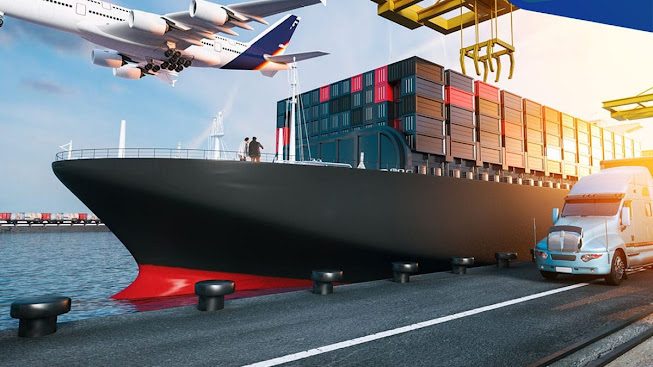Outsourcing Models in Air Cargo
In today's fast-paced and dynamic air cargo industry, flexibility and efficiency are paramount. To meet the ever-changing demands of the global supply chain, cargo companies are increasingly turning to outsourcing models that enable them to optimize their operations, reduce costs, and focus on their core competencies. In this blog post, we will explore the various outsourcing models prevalent in the air cargo industry, highlighting their advantages and considerations.
 |
| Outsourcing Models in Air Cargo |
The Evolution of Outsourcing
Outsourcing in the air cargo industry has evolved significantly over the years. Traditionally, cargo companies handled most aspects of their operations in-house. However, as the industry became more complex and competitive, outsourcing emerged as a strategic approach to stay agile and cost-effective.
Common Outsourcing Models
- Ground Handling Services: Outsourcing ground handling services, including cargo loading and unloading, ramp operations, and baggage handling, is a common practice among airlines and cargo carriers. Ground handlers are specialists in these areas, ensuring efficiency and compliance with safety standards.
- Third-Party Logistics (3PL) Providers: Cargo companies often partner with 3PL providers to manage various aspects of their supply chain, including transportation, warehousing, and distribution. 3PLs offer expertise, infrastructure, and technology to optimize logistics operations.
- Cargo Handling Facilities: Some cargo companies outsource the operation and management of cargo handling facilities, including warehouses and cargo terminals. This allows them to focus on their core business while leveraging the infrastructure and expertise of facility operators.
- Information Technology (IT) Services: Outsourcing IT services, such as cargo management systems and software development, can help cargo companies stay competitive by accessing cutting-edge technology without the need for in-house development and maintenance.
- Customer Service and Call Centers: Cargo carriers often outsource customer service and call center functions to specialized providers to ensure efficient and responsive customer support.
Advantages of Outsourcing in Air Cargo
- Cost Savings: Outsourcing allows cargo companies to reduce operational costs, as they can leverage the economies of scale and expertise of specialized service providers.
- Focus on Core Competencies: Outsourcing non-core functions enables cargo companies to concentrate on their primary business activities and strategic priorities.
- Access to Expertise: Partnering with specialists in various areas, such as logistics or IT, ensures access to industry expertise and best practices.
- Scalability: Outsourcing models are often scalable, allowing cargo companies to adapt to changing demand levels without significant capital investments.
Considerations and Challenges
- Quality Control: Maintaining control and ensuring the quality of outsourced services can be a challenge. Establishing clear performance metrics and service level agreements (SLAs) is essential.
- Data Security: Outsourcing may involve sharing sensitive data with service providers. Ensuring data security and compliance with regulations is critical.
- Vendor Selection: Selecting the right outsourcing partners is crucial. Cargo companies must conduct thorough due diligence to assess the capabilities, reputation, and reliability of service providers.
- Risk Management: Outsourcing introduces risks, such as service disruptions or provider financial instability. Effective risk management strategies are necessary.
Conclusion
Outsourcing models have become integral to the success of air cargo companies seeking to stay competitive and efficient in today's global marketplace. Whether it's ground handling, logistics, IT services, or customer support, the strategic use of outsourcing can enable cargo companies to focus on their core competencies, reduce costs, and adapt to the ever-changing demands of the industry.
As the air cargo sector continues to evolve, cargo companies will likely explore new outsourcing opportunities and partnerships to stay agile and responsive to the challenges and opportunities presented by the dynamic global supply chain. Effective outsourcing strategies are key to remaining competitive and thriving in this fast-paced industry.



Comments
Post a Comment